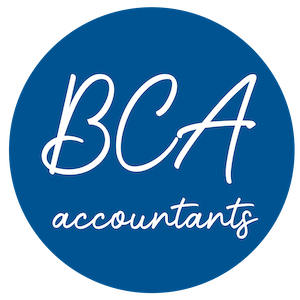
As a limited company owner, understanding the expenses your company can claim is crucial for maintaining tax efficiency and reducing your Corporation Tax payment. This guide provides an overview of allowable expenses, how to claim them, and essential considerations to stay compliant with HMRC regulations.
Fundamental Rules for Limited Company Expenses:
- You can only claim expenses that are wholly and exclusively incurred during your business operations.
- Expenses with dual purposes for personal and business use are not eligible for claims.
- Business expenses can be paid through your company’s bank account or reimbursed if paid personally.
- Most limited company expenses can be offset against your corporation tax liability, with exceptions such as business entertainment.
- Maintaining accurate records of pre-formation and running costs, including VAT receipts, is essential to justify your expense claims if questioned by HMRC.
- Claiming Expenses as a Limited Company:
- Expenses can be paid directly from your business account or reimbursed if you personally cover the costs. Creating a company expense form and policy ensures clarity for employees regarding allowed expenditure limits.
Record Keeping for Limited Company Expenses:
Maintaining meticulous records is crucial to support your limited company’s expense claims. Whether physical or digital copies, keep all relevant receipts for expenses such as business mileage, fuel costs, and equipment. Consider using an expense spreadsheet for easy updating and amendment throughout the year.
Allowable Expenses for Limited Companies:
- Accommodation: If you need to stay overnight away from home for a business trip, you can claim the accommodation costs as an expense. Additionally, the costs incurred for food, drink, and travel can be claimed as travel and subsistence costs.
- Advertising, Marketing, and PR: Expenses incurred for advertising, marketing, and PR activities aimed at promoting your services can be claimed as limited company expenses, provided they are used solely for business purposes.
- Annual Staff Parties: Expenses incurred for staff parties, such as Christmas or summer parties, can be claimed as a business expense if the event is annual, open to all staff members, and costs less than £150 per person.
- Bank Charges: Bank fees charged to your business accounts, including credit card fees and loan interest, can be claimed as business expenses.
- Business Insurance: The cost of business insurance policies, including public liability insurance, employers’ liability, professional indemnity insurance, and contents insurance, can be claimed as limited company expenses as long as they are used strictly for business purposes.
- Entertainment Expenses: Generally, expenses related to business entertainment are not allowable against profits. However, if you have to spend your own money on business entertainment as part of your duties as a limited company director, you may be able to claim it as a business expense. Note that these expenses would be disallowed in the company profits, resulting in a similar outcome as not claiming them in the first place.
- Equipment: Equipment necessary for your role as a limited company director, such as computers, software, scanners, printers, and office furniture, can be claimed as company expenses as long as they are primarily used for business purposes.
- Eye Tests and Health Checks: If your employees extensively use computer screens for work, they can claim eye tests and health checks as limited company expenses. The cost of prescription glasses or contact lenses can also be claimed if they are solely used for screen-based work related to their employment.
- Pensions: Payments made into a pension pot, with an agreement established with a pension provider, are eligible for 100% tax relief as limited company expenses. There is a limit of £60,000 on tax-free contributions to a pension scheme via your business or personal.
- Phone Bills: Work phone contracts and broadband payments can be claimed as limited company expenses. The entire bill can be claimed if the mobile phone contract is in the company’s name and used solely for business purposes. For personal contracts, only business-related expenses can be claimed. Business calls from your home phone line are also eligible for limited company expenses.
- Professional Development: Personal development and training courses relevant to your business can be claimed as limited company expenses. However, please make sure that the training is eligible before claiming the expenses. For example, training to become a chartered accountant is an allowable expense if you’re an accountant.
- Professional Subscriptions: Magazine subscriptions, journals, and books related to your occupation can be claimed as limited company expenses. For example, suppose you’re an editor of a photography magazine and have a subscription to a rival publication to stay updated on industry trends and competition. In that case, the subscription cost can be claimed.
- Salary: If you choose to pay yourself a salary as an employee of your limited company, the salary and corresponding National Insurance Contributions (NIC) can be claimed as allowable expenses. However, once you reach the National Insurance threshold, NICs must be paid.
- Startup Costs: Pre-formation business expenses incurred up to seven years before your company starts trading can be claimed as limited company expenses. These may include laptops, computer software, internet and domain name fees, travel costs, and professional services such as accounting and legal help.
- Travel Expenses: Travel costs can be claimed as limited company expenses if you are responsible for paying them and the travel is necessary for work purposes, excluding your everyday commute. Different rates apply for using personal cars, vans, motorcycles, or bicycles, and expenses such as parking, toll fees, congestion charges, hotel rooms (within reason), food and drink on overnight trips, public transport fares, vehicle insurance, repairs, and servicing can also be claimed.
- Use of Home as Office: If your home is the primary location for your business activities, you can claim a percentage of household costs and utility bills as business expenses. This can be done by using a standard rate of £6 per week or by determining the rooms used for business needs and the time they are used for work purposes. Expenses such as lighting, heating, postage and printing costs, as well as accountancy and legal services, can also be claimed as long as they are exclusively used for business purposes.
Can I claim my lunch on expenses?
If you are self-employed or work through your own limited company, you may be able to claim lunch expenses as a business expense. You must meet certain criteria to claim lunch expenses, such as working away from your normal workplace, working overtime, or working on a public holiday. You’ll also need to keep receipts or other documentation to support your claim. The maximum amount you can claim for lunch expenses is currently £10 per day. If you claim lunch expenses as a sole trader, you must declare them on your self-assessment tax return. If you claim lunch expenses as a limited company, you must add them to your company’s annual accounts.
Final thoughts…
Ensuring tax efficiency is crucial for minimising tax liabilities. You can effectively manage your limited company’s finances by understanding the concept of allowable expenses and adhering to the rule that expenses must be wholly, exclusively, and necessary for business operations. In case of any uncertainties or questions about allowable expenses, please consult with me to ensure they’re in compliance.
As always, if you have any questions or concerns about these or would like to talk about your tax situation, please click here to schedule a call.
